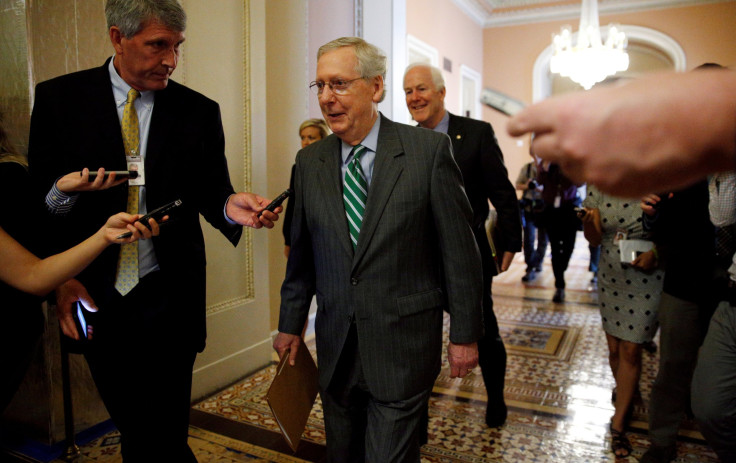5 Republicans Who Won’t Support Health Care: Will More Join?

Senate Republicans are weathering a rocky roll out to their health care bill. The bill is meant to be the first step in repealing and replacing the Affordable Health Act, also known as Obamacare. It makes deep cuts to Medicaid while cutting taxes for businesses and wealthier Americans. Four Republicans said the bill does not go far enough to repeal Obamacare, while one said they cannot support it because of the deep cuts. Several others appear to be on the fence.
Senate Majority Leader Mitch McConnell can only lose two Republican votes, otherwise, he can’t get the bill passed. The bill was crafted to be considered under the reconciliation process. This process means the bill can be passed by a simple majority as opposed to the customary 60-vote majority needed for legislation. The Senate currently has 52 Republicans and 48 Democrats and Independents, none of whom will support the Republican bill. In the case of a 50-50 tie, Vice President Mike Pence will cast the deciding vote.
READ: How Does The Senate Health Care Bill Affect Seniors?
On Friday Sen. Dean Heller of Nevada said wouldn’t support the bill.
"I’m announcing today that in this form I will not support it," Heller said at a press conference. "It’s going to be very difficult to get me to a yes. You have to protect Medicaid expansion states. That’s what I want.”
Heller joins senators Ted Cruz of Texas, Ron Johnson of Wisconsin, Mike Lee of Utah and Rand Paul of Kentucky who said in a joint statement Thursday that they aren’t ready to support the bill.
“Currently, for a variety of reasons, we are not ready to vote for this bill, but we are open to negotiation and obtaining more information before it is brought to the floor,” the statement read. “There are provisions in this draft that represent an improvement to our current health care system, but it does not appear this draft as written will accomplish the most important promise that we made to Americans: to repeal Obamacare and lower their health care costs.”
The bill does not go far enough in repealing Obamacare for the four conservative senators. They are much more likely to “get to” yes because while the bill is not as a big a step as they would like, it is still closer to a full Obamacare repeal than no bill.
Other senators haven’t come out against it directly, but appear weary, like Sen. Susan Collins of Maine Sunday.
"For my part, I'm very concerned about the cost of insurance for older people with serious chronic illnesses and the impact of the Medicaid cuts on our state governments, the most vulnerable people in our society, and health care providers such as our rural hospitals and nursing homes, most of whom are very dependent on the Medicaid program,” said Collins on ABC’s “This Week.”
A provision of the bill which stops funding for Planned Parenthood for one year could be a sticking point for Collins and Alaska’s Sen. Lisa Murkowski reported the New York Times reported Monday.
READ: Twitter Responds To Medicaid Cuts In Republican Healthcare Bill, Protests Form Outside McConnell's Office
McConnell wanted to have the bill voted on before the Fourth of July recess, meaning the Senate has only around one week to consider a bill that many saw for the first time on Thursday. The bill was crafted in secrecy. The speed has other Republicans uneasy.
"I would like to delay the thing," said Sen. Ron Johnson of Wisconsin on NBC’s “Meet the Press” Sunday. "There's no way we should be voting on this next week. No way."
© Copyright IBTimes 2024. All rights reserved.











